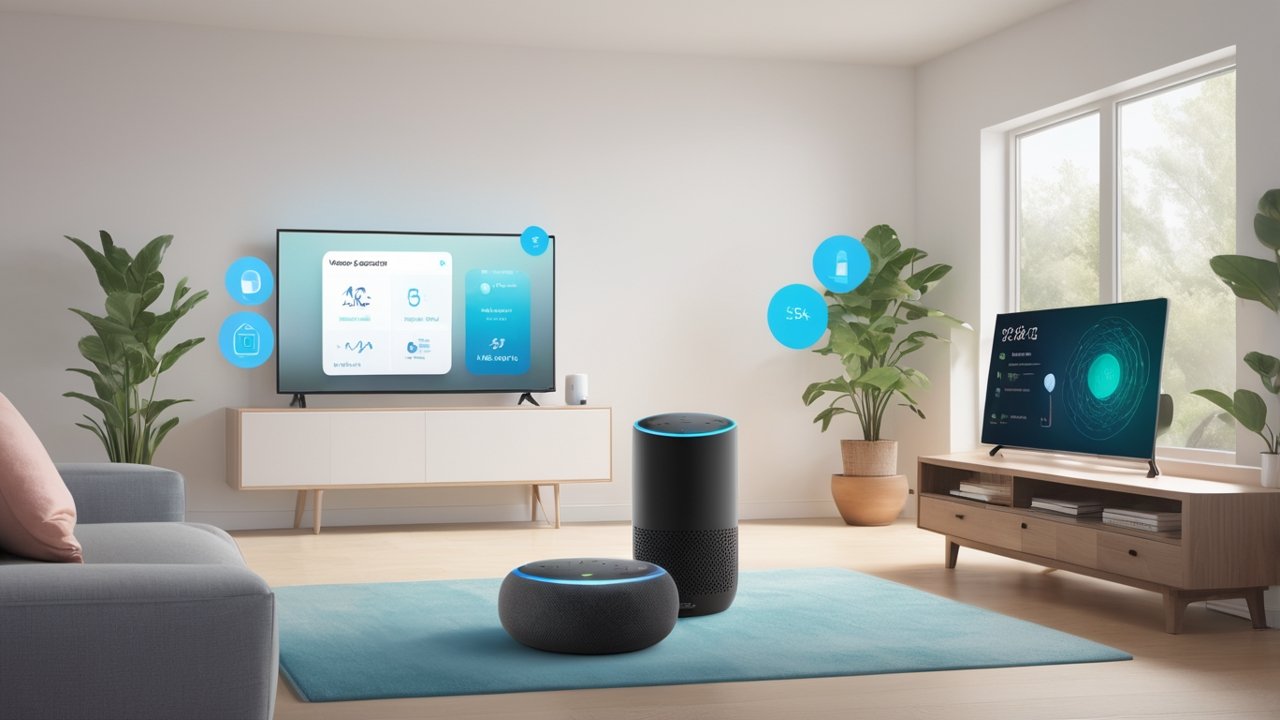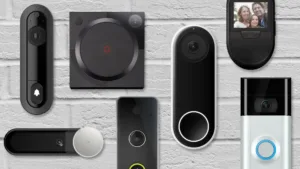Smart home technology is no longer a futuristic concept—it’s the new standard. Whether you’re building a home from the ground up or simply upgrading your current living space, choosing the right smart home ecosystem is a game-changer. In 2024, three major players dominate this space: Amazon Alexa, Google Home, and Apple HomeKit. But which one is best for you?
This guide breaks down the Alexa vs. Google vs. Apple ecosystems in simple, everyday language so you can make the smartest decision for your home, your family, and your lifestyle.
What Is a Smart Home Ecosystem?
Think of a smart home ecosystem as the “brain” behind your connected devices. It allows you to control things like lights, locks, cameras, thermostats, and more—all from your phone or voice assistant.
But not all ecosystems are created equal. The differences between Alexa, Google, and Apple go beyond brand names—they affect compatibility, privacy, ease of use, and even resale value.
Alexa vs. Google vs. Apple Ecosystems: Quick Comparison
| Feature | Amazon Alexa | Google Home | Apple HomeKit |
|---|---|---|---|
| Ease of Use | Very easy | Intuitive, especially with Android | Seamless for Apple users |
| Device Compatibility | Widest range | Excellent with Nest/Android | Limited to Apple-friendly devices |
| Privacy | Decent (some concerns) | Good (data used for Google services) | Strongest privacy controls |
| App Integration | Alexa App | Google Home App | Apple Home App |
| Best For | Budget-friendly homes | Android-powered homes | Apple enthusiasts, premium builds |
How Alexa, Google, and Apple Smart Home Systems Affect Home Construction Decisions
If you’re in construction or working with builders, your choice of ecosystem can directly influence wiring, fixture selection, and budget allocation. Here’s how:
1. Pre-Installation Requirements
Alexa and Google typically run on Wi-Fi and don’t need much pre-planning.
Apple HomeKit may require special hubs or certified accessories for full integration.
2. Material and Fixture Choices
Want to install smart thermostats or light switches? Make sure they support your chosen ecosystem.
Alexa supports most third-party brands, while Apple HomeKit accessories must be certified.
3. Future-Proofing the Home
Builders are increasingly pre-installing smart outlets and speaker systems. Choosing an ecosystem early ensures seamless upgrades down the line.
Voice Assistant Comparison: Alexa vs Google Assistant vs Siri
Amazon Alexa
Works well with Echo devices.
Strong third-party support (lights, locks, appliances).
Great for multi-room audio and routines like “Good Morning” or “Bedtime”.
Google Assistant
Integrates deeply with Google services (Calendar, Maps, Gmail).
Smart at understanding natural language—you don’t need to speak robot.
Ideal for Android users or those already using Google products.
Apple Siri (HomeKit)
Super secure and private—all local processing.
Tightly connected to iOS and Apple ecosystem.
Works best with Apple TV, HomePod, or iPad as a hub.
Device Ecosystem Compatibility
If you already own smart devices (like Ring cameras, Philips Hue lights, or Nest thermostats), this section is key:
Amazon Alexa
Works with most devices, including budget brands.
Allows custom routines and voice commands.
Affordable smart plugs and switches available.
Google Home
Plays best with Nest, TP-Link, and Android-integrated systems.
Smart displays are fantastic for visual feedback.
Apple HomeKit
Prioritizes certified security and privacy.
Works seamlessly with iPhone, Apple Watch, and Mac.
Limited third-party device support but growing fast.
User Privacy and Data Security
Let’s be honest—your smart home knows a lot about you. Here’s how each ecosystem handles your data:
Apple HomeKit: Winner for privacy. All data is encrypted and processed locally. Great for privacy-conscious homeowners.
Google Home: Uses some data to enhance Google services. You can manage your data settings easily.
Amazon Alexa: Offers controls but stores more data by default. Frequent updates have improved transparency.
Practical Use Cases for Homeowners
Still wondering which system works best for you? Here’s how each performs in real-world scenarios:
Scenario 1: A Family with Kids and Pets
Alexa: Set routines for morning alarms, smart plugs for kid-safe lamps, voice timers for homework.
Google: Ask “Hey Google, when’s my kid’s soccer game?”—syncs with family calendar.
Apple: Use location-based automations—lights turn on when kids arrive home.
Scenario 2: Home Construction or Renovation
Alexa/Google: Easy to add devices post-build.
Apple: Plan for HomeKit-certified wiring or hubs during construction.
Pros and Cons Summary
Amazon Alexa
Pros: Budget-friendly, huge device support, easy setup
Cons: Slightly less privacy, may require app tweaking
Google Home
Pros: Smartest voice assistant, works well with Android
Cons: Still maturing in third-party device integration
Apple HomeKit
Pros: Premium privacy and security, great for Apple users
Cons: Limited device choices, higher upfront costs
FAQ: Alexa vs. Google vs. Apple Ecosystems
Which smart home ecosystem is easiest to set up?
Alexa is the easiest and most beginner-friendly with quick setup and voice training.
Which ecosystem is best for privacy?
Apple HomeKit leads the pack with end-to-end encryption and no cloud storage by default.
Can I mix smart home ecosystems?
Yes, but it’s best to stick to one main ecosystem to avoid conflicts or app overload.
What’s best for resale value in a home?
Homes with Apple HomeKit or integrated Google systems often appeal to tech-savvy buyers—builders take note!
Final Thoughts: Which Ecosystem Is Right for You?
Choosing between Alexa vs. Google vs. Apple ecosystems comes down to your existing devices, privacy preferences, and how much you’re willing to invest. For everyday users, Alexa offers flexibility and affordability. For Android fans, Google Home brings intelligence and seamless search. And for Apple lovers, HomeKit ensures privacy and smooth automation—especially in high-end homes.
Still unsure? Try starting with a smart speaker from each brand and see which one fits your lifestyle best.
Want help planning your smart home upgrade? Drop your questions in the comments, or explore our Smart Home Setup Guide for more hands-on tips.








